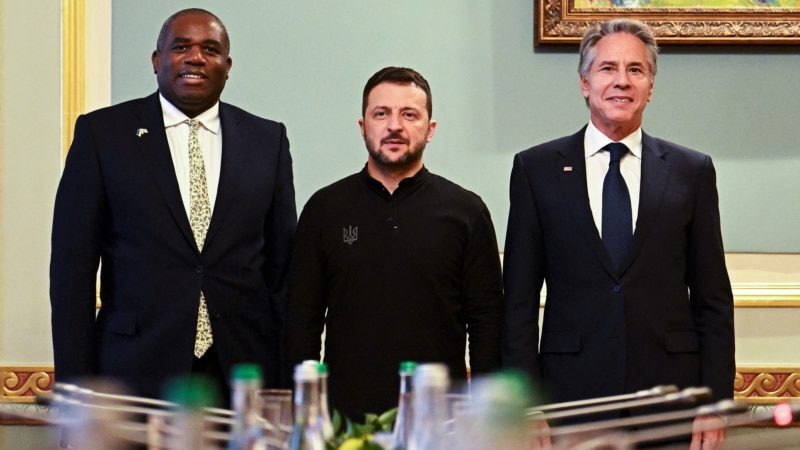BTN News: The United States and Great Britain have announced nearly $1.5 billion in additional assistance to Ukraine, as the war-torn nation faces mounting military and humanitarian challenges. In a significant show of support, U.S. Secretary of State Antony Blinken and U.K. Foreign Secretary David Lammy visited Kyiv, revealing a substantial aid package that includes humanitarian support, financial guarantees, and critical infrastructure repairs. As Ukraine presses its Western allies to allow the use of long-range missiles against Russian targets, this latest commitment underscores the enduring complexities of the conflict and the international community’s ongoing involvement.
Major Support Package Announced During Kyiv Visit
During a rare joint visit to Kyiv, Secretary Blinken announced over $700 million in U.S. humanitarian aid for Ukraine, aimed at providing essential supplies and services to citizens affected by the ongoing conflict. Meanwhile, the U.K. confirmed its commitment of £782 million (around $950 million) in assistance and loan guarantees. A significant portion of these funds will focus on reinforcing Ukraine’s energy grid, which has been repeatedly targeted by Russian attacks ahead of what is expected to be a harsh winter.
Ukraine Urges Western Allies for Greater Military Support
Ukrainian officials seized the opportunity of the joint diplomatic visit to press their case for more advanced weaponry. They specifically called on the U.S. and the U.K. to permit the use of long-range missiles supplied by Western allies to strike targets within Russian territory. The Ukrainian government argues that such measures are necessary for effective self-defense and to deter further aggression. However, this request has been met with caution from Western leaders, who fear that expanding the conflict could lead to a broader escalation.
Concerns Over Escalation as Winter Approaches
Western leaders have expressed concerns about the potential for increased conflict if Ukraine is allowed to use long-range missiles against Russia. President Joe Biden has authorized Ukraine to use U.S.-provided missiles in self-defense, but with significant limitations on their range to avoid crossing into Russian territory. Ukrainian President Volodymyr Zelenskyy has been vocal in pushing for changes to these restrictions, emphasizing the critical need for more robust defense capabilities as the war continues.
Blinken and Lammy Reaffirm Commitment Amid Rising Tensions
Speaking at a press conference in Kyiv, Blinken highlighted the flexibility of U.S. support, noting that it has adapted to meet Ukraine’s evolving needs on the battlefield. “We have adjusted as the situation on the ground has changed, and we will continue to do so,” Blinken stated. Lammy echoed this sentiment, describing the conflict as being at a “critical moment” and reaffirming the U.K.’s commitment to aiding Ukraine. He offered condolences for the lives lost in recent Russian attacks, which have targeted civilian areas across Ukraine, resulting in numerous casualties, including women and children.
Future of Western Aid: Strategic Decisions on the Horizon
As the war nears its third year, the question of military aid remains a contentious issue among Ukraine’s Western partners. The Biden administration faces ongoing pressure to reassess its current limitations on missile use, with Zelenskyy hoping for “some decisive decisions” from the U.S. in the coming weeks. “We depend heavily on this support,” Zelenskyy stated, underscoring the vital role that Western aid plays in Ukraine’s resistance against Russian aggression.
Conclusion: Balancing Support and Caution in a Prolonged Conflict
The diplomatic visit to Kyiv by Blinken and Lammy serves as a reminder of the fragile balance between providing robust support to Ukraine and managing the risks of a wider conflict. As both the U.S. and the U.K. commit significant new resources to aid Ukraine through another challenging winter, the debate over military aid, particularly the use of long-range missiles, remains a critical point of tension. The next steps taken by Western leaders could shape the trajectory of this conflict for months to come.


